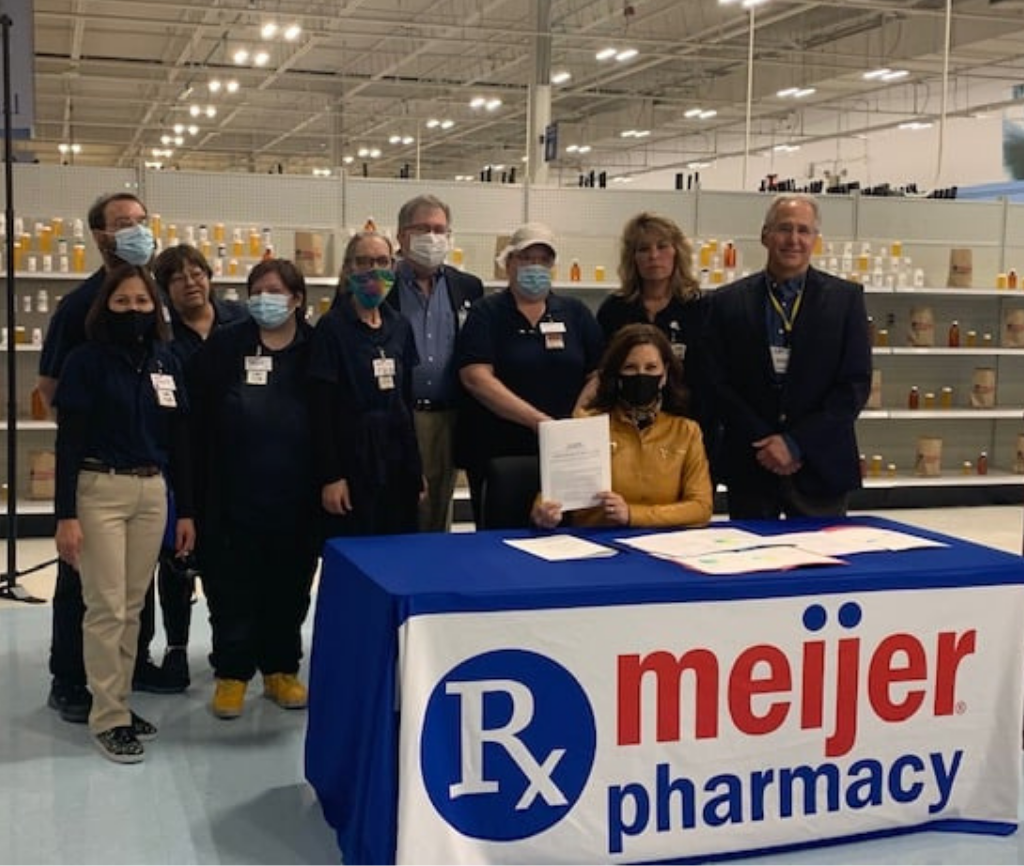On Feb. 23, members of UFCW Local 951 joined Michigan Governor Gretchen Whitmer at a bill signing event in Lansing, Mich. At the event, which was held at a Meijer store, Governor Whitmer signed a package of bills into law that will help lower prescription drug prices and allow pharmacists to provide more honest advice for treatment options.

Michigan House Bills 4348, 4351, and 4352 were put together by the governor’s Prescription Drug Task Force, which is made up of health policy experts, bipartisan legislators, and key stakeholders.
Some key changes from this package of legislation include:
- HB 4348: Helps make necessary medications, like insulin, affordable by prohibiting Pharmacy Benefit Managers (PBMs) from forcing pharmacists to sign “gag clauses” so that pharmacists can communicate openly and honestly with patients about options.
- HB 4351: Prohibits a PBM from excluding or discriminating against a pharmacy solely because the carrier does not have a vested financial interest in the pharmacy.
- HB 4352: Allows pharmacists to provide the current selling price of a drug the pharmacy dispenses or comparative current selling prices of generic and brand name drugs it dispenses without being asked.
“I am proud to sign this bipartisan legislation that helps us lower the cost of prescription drugs,” said Governor Whitmer. “For too long, unlicensed Pharmacy Benefit Managers have been able to engage in practices that drive up costs for Michiganders whose lives and health depend on critical prescription drugs like insulin. This bill brings much-needed transparency to our health care system and is a testament to what we can do when we put Michiganders first. I am grateful for the work of my Prescription Drug Task Force for their recommendations and our legislative partners who joined with us to get this done.”

“We are proud to stand with Governor Whitmer today as these sweeping changes are signed into law,” said UFCW Local 951 President John Cakmacki. “Our members work in hundreds of pharmacies across the state, providing care to millions of Michiganders each year. These reforms will help lower the out-of-pocket costs for critical drugs, while holding bad actors accountable to make drug pricing more transparent to both the consumer and our providers.”

